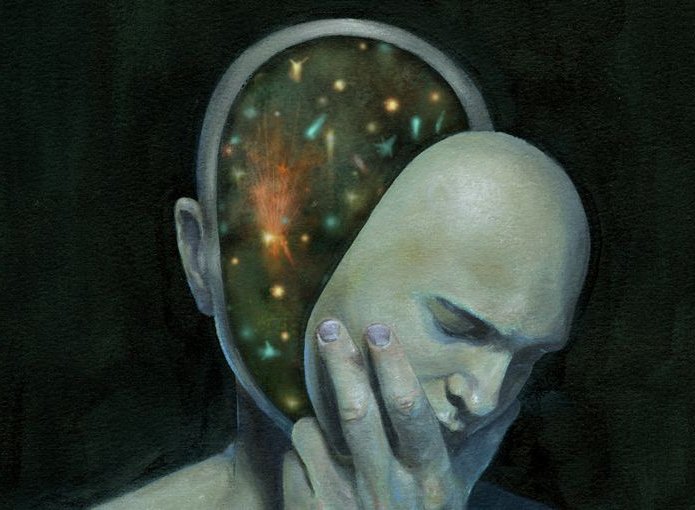Sin is so irrational. If someone had written a fictitious short story about a man with the last name “Bottom” who sent pictures of his “bottom” across cyberspace, no one would laugh. The ironic humor would be lost in obviousness of foolishness. On the other hand, laughter and shock abound at such irony in real life. Truth is always stranger, weirder, funnier, and sadder than fiction. That is probably why Reality TV is much more popular than today’s Soaps and Sitcoms. I am still trying to grasp the incredible irony found in the sinfully stupid decisions of Representative Anthony Wiener. No one could have written a story to equal both the humor and the tragedy. The story teaches us much about the dangers of position, the power of technology, and the absurdity of the press. If nothing else, a happily married and successful man’s decision to blast pictures of his body parts to porn stars and college students (all while his pregnant wife travels the world with our Secretary of State) demonstrates the irrationality of sin.
humor would be lost in obviousness of foolishness. On the other hand, laughter and shock abound at such irony in real life. Truth is always stranger, weirder, funnier, and sadder than fiction. That is probably why Reality TV is much more popular than today’s Soaps and Sitcoms. I am still trying to grasp the incredible irony found in the sinfully stupid decisions of Representative Anthony Wiener. No one could have written a story to equal both the humor and the tragedy. The story teaches us much about the dangers of position, the power of technology, and the absurdity of the press. If nothing else, a happily married and successful man’s decision to blast pictures of his body parts to porn stars and college students (all while his pregnant wife travels the world with our Secretary of State) demonstrates the irrationality of sin.
Sadly, a man who seemingly had it all, is now considered a liar, a pervert, an unfaithful husband, a loser, a psycho, an overall bad man. He will be the source of jokes for years to come. Whenever I hear the newest jokes, headlines, or newest revelations about the Representative, I can always feel the pride in me welling me–distancing myself from “that kind” of brokenness. That misguided tendency is only encouraged with Representative Wiener’s decision to check himself into Sex-addiction Rehab. It’s like an entirely new level of sin! At some level, even in my pride, I can empathize with lying and lusting. But once you throw down the word “addiction”, you’ve entered into a place of darkness that “clean” people like myself don’t fall into–too sanctified. And instead of one man’s story forcing me to my knees as I realize my own depravity, I stand in pride and pray for this poor soul, just like the Pharisee in Luke 18.11 who prayed, “God, I thank you that I am not like other men, extortioners, unjust, adulterers, or even like this tax collector.”
In truth, we are all Wieners–we are all addicts. The object of our addictions may differ, but the nature of our addiction remains the same. We are addicted to idols–we are idolaters. Addiction takes something good and makes it bad. As Tim Keller says, “Sin isn’t only doing bad things, it is more fundamentally making good things into ultimate things. Sin is building your life and meaning on anything, even a very good thing, more than on God. Whatever we build our life on will drive us and enslave us. Sin is primarily idolatry.” That is what Weiner did and, let’s be honest, that is what we all have done (and do). Whenever we sin, we find our meaning, hope, and joy in some part of creation–it is irrational and it leads us all to irrational behavior. Like the “many gods” (1Cor 8.6) Paul writes about, addictions have many forms: alcohol, food, sex, relationships, money, and pretty much any other part of creation you can worship (which is everything). If you don’t view yourself this way, then you are prideful, and you’ve just demonstrated your depravity all the more.
When another’s sin comes into the light, I pray that we do not use it as an opportunity for piety. We must come to the conviction that we are the most sinful person in the world (1Tim 1.15), that we are just as broken, just as weak, just as rebellious, and just as likely to act, think, or say something as equally foolish and sinful. This is humility–knowing our sin and knowing the grace of God at the same time. It is this kind of humility, Christ-centered humility, that moves us to empathy and compassion for others caught in their sin. This not a call for toleration but for confession, beginning with our own. So, as we call sin what it is, let its seemingly ubiquitous presence forever remind those whom Jesus has saved, those who are God’s children, of the addictive darkness God has saved us all from. He has not saved us from idols, he has saved us from ourselves. He has turned us from our idols to worship the true living God (1Thess 1.9) and transformed us from children of wrath that we all once were (Ephesians 2).




